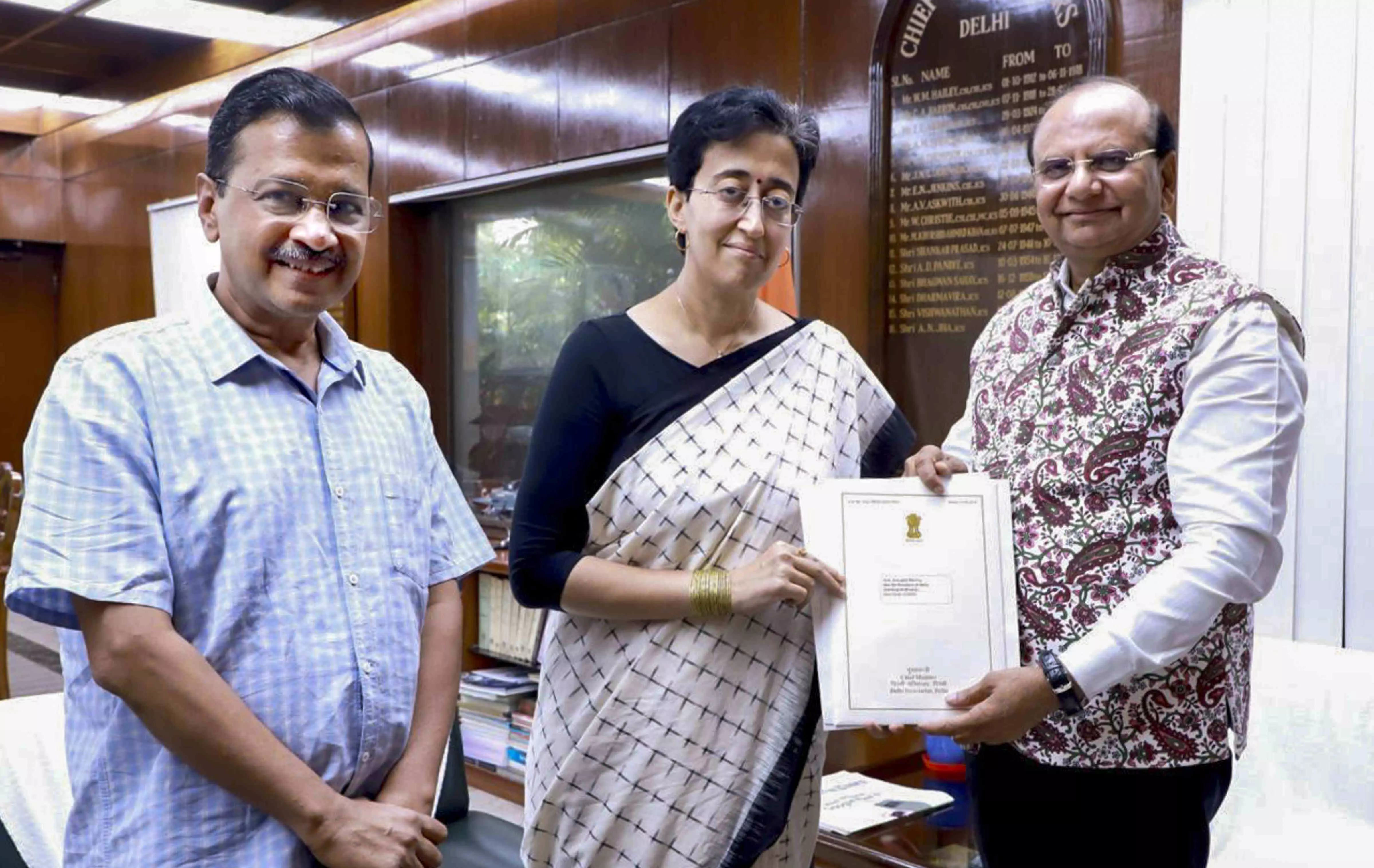A risky gambit?

Arvind Kejriwal, who lately emerged as one of the leaders who could challenge the political clout of Narendra Modi-led BJP in certain regions, has lived up to the expectations by remaining a step ahead of his political rivals. At one point in time in the preceding decade, BJP’s political clout seemed only remotely challenged. The realities have changed: while the BJP is forced to go full throttle against the rising AAP, the INDIA bloc, too, lent it a shocking blow through its Lok Sabha election performance—limiting the BJP within the simple majority mark. Amid the proceedings of the liquor policy case, the BJP left no stone unturned in coming down heavily upon the AAP and its leaders; and it seemed that decimation of the party was a done deal. Credit to the political acumen of Kejriwal, the party seems not only to have survived the storm, but is also strategising to push the BJP on a defensive.
Albeit on a bail with unusual conditions, Kejriwal’s release is a strong message to the BJP. More importantly, the Supreme Court’s castigation of the Central Bureau of Investigation (CBI), terming it to be a “caged parrot”, implied there must be an agency to cage the parrot. It requires no second guess what that agency could be! As if that was not enough, following his release, Kejriwal has tendered his resignation with an intent to come back with the ‘certificate of honesty’, giving the BJP yet another political complexity to wrap its head around. Kejriwal’s public declaration that he will not sit in the Chief Minister's chair until the people of Delhi give their verdict on his honesty presents the image of a leader who seeks validation from the electorate. However, Kejriwal’s decision to resign and call for early elections is not without a political strategy. AAP has positioned this resignation as a fresh mandate—an opportunity to let the people decide whether the party has been unjustly targeted or if it has indeed failed them. In his speech, Kejriwal framed the resignation as an act of deference to the people’s will, attempting to turn the tables on his adversaries by converting the legal adversity into an electoral opportunity.
This is indeed a big political gambit by Arvind Kejriwal, driven more by his trust in political comeback than by an urge to validate his honesty in people’s court. He is a leader who has the ability to catch the pulse of the electorate, and the BJP has all the reasons to be wary about. However, popular mood is never all predictable, meaning Kejriwal cannot rest assured about his decision until the people’s mandate comes.
During Kejriwal's absence, Delhi faced multiple crises, including heavy rainfall leading to waterlogging, fatal accidents, garbage pile-ups, and a general decline in civic amenities. Opposition parties have been quick to capitalise on these failings. The BJP and the Congress have both accused Kejriwal of "misgovernance" and being absent during crucial moments when the city needed leadership. BJP leaders have portrayed the resignation as a “confession of his crime,” while the Congress has labelled it a “political drama,” pointing out that the AAP government lost its moral legitimacy months ago when the Chief Minister was arrested.
For now, these allegations seem to be mere political gimmicks. Kejriwal’s absence from the scene was not voluntary; it was forced by what many believe to be political manoeuvrings of the NDA government. The presumption of his resignation being a “confession of crime” is less likely to resonate among the electorate, particularly when he is out in-person. Instead, a wave of sympathy appears palpable. Politics is a game of narratives, and the AAP will definitely strive to build a narrative of the BJP crippling the governance of Delhi, pushing it into turmoil. BJP’s counterattack is already visible. Amid all this, the wisdom of Delhiites must be trusted.



